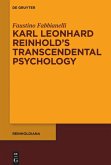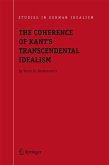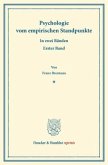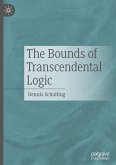For the last 100 years historians have denigrated the psychology of the Critique of Pure Reason. In opposition, Patricia Kitcher argues that we can only understand the deduction of the categories in terms of Kant's attempt to fathom the psychological prerequisites of thought, and that this investigation illuminates thinking itself. Kant tried to understand the "task environment" of knowledge and thought: Given the data we acquire and the scientific generalizations we make, what basic cognitive capacities are necessary to perform these feats? What do these capacities imply about the inevitable structure of our knowledge? Kitcher specifically considers Kant's claims about the unity of the thinking self; the spatial forms of human perceptions; the relations among mental states necessary for them to have content; the relations between perceptions and judgment; the malleability essential to empirical concepts; the structure of empirical concepts required for inductive inference; and the limits of philosophical insight into psychological processes.
In this innovative study Patricia Kitcher argues that we can only understand the deduction of the categories in Kant's Critique of Pure Reason in terms of his attempt to fathom the psychological prerequisites of thought. Thus a consideration of his conception of psychology is essential to an understanding of his philosophy. Kitcher specifically considers Kant's claims about the unity of the thinking self; the spatial forms of human perceptions; the relations among mental states necessary for them to have content; the relations between perceptions and judgment; and the limits of philosophical insight into psychological processes.
Hinweis: Dieser Artikel kann nur an eine deutsche Lieferadresse ausgeliefert werden.
In this innovative study Patricia Kitcher argues that we can only understand the deduction of the categories in Kant's Critique of Pure Reason in terms of his attempt to fathom the psychological prerequisites of thought. Thus a consideration of his conception of psychology is essential to an understanding of his philosophy. Kitcher specifically considers Kant's claims about the unity of the thinking self; the spatial forms of human perceptions; the relations among mental states necessary for them to have content; the relations between perceptions and judgment; and the limits of philosophical insight into psychological processes.
Hinweis: Dieser Artikel kann nur an eine deutsche Lieferadresse ausgeliefert werden.








